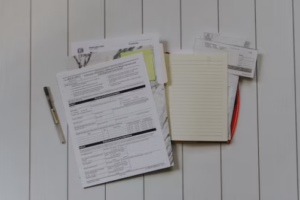6 Best Practices for Sales Tax Exemption Certificate Management
Guest Author: Gail Cole
Senior Marketing Writer, Avalara
If you don’t collect sales tax on a taxable sale, you need to validate the exemption by collecting an exemption certificate or resale certificate from your customer. Otherwise, you could end up liable for the uncollected tax, plus associated penalties and interest.
An exemption or resale certificate is a document that identifies the business or individual making the exempt purchase as well as the reason for the exemption. As a seller, it falls to you to request the necessary certificate from your customers, ensure it’s valid, store it, and renew/update it when required. Inaccurate, invalid, or missing exemption certificates tend to be a key source of negative audit findings.
These six best practices for sales tax exemption certificate management can help prevent documentation snafus.
- Understand your sales tax obligations
- Collect an exemption certificate from every customer at the point of sale
- Validate exemption certificates immediately
- Renew certificates early
- Store certificates in a secure and accessible location
- Automate certificate management
1. Understand your sales tax obligations
This is critical. It’s your job to know and understand the laws that impact you.
Sales tax laws and regulations are labyrinthine and subject to change, so keeping abreast of tax obligations can be challenging. When it comes to exemption certificate management, you’ll want to pay particular attention to requirements related to sales tax nexus, drop shipping, and exemption certificates.
Sales tax nexus
Sales tax nexus is a connection that allows a taxing authority, like a state, to tax a business’s transactions in the state. If you don’t have nexus with a state, the state cannot require you to register to collect and remit sales tax. However, if you do, you are required to register.
There are several ways to establish sales tax nexus with a state. The two most common are economic activity in the state (economic nexus) and physical presence in the state. A physical connection used to be essential, but the Supreme Court of the United States overturned the physical presence rule in South Dakota v. Wayfair, Inc. (June 21, 2018), freeing states to tax remote sales.
Nexus matters. If you have nexus with Florida and New York, you need to register, collect and remit sales tax on taxable transactions in Florida and New York. Likewise, you’re required to validate exempt transactions in those states with the appropriate exemption or resale certificate. This is true for all states with a sales tax when the exemption is based on who the customer is or how the item/service is used, without exception.
Drop shipping
Drop shipping scenarios can complicate sales tax compliance because they involve two sellers (the retailer and the supplier), at least one exempt transaction (a sale for resale), a customer, and up to three different states. It can be difficult to unravel who’s responsible for collecting the applicable tax(es), who’s responsible for documenting exempt sale(s), and which certificate(s) will validate the exemption(s), especially since requirements vary from state to state.
State exemption certificate requirements
Validating exempt sales would be a dream if every state allowed the same exemptions and used the same certificate for all exempt transactions. The reality is far more nightmarish.
Policies related to sales tax exemptions differ from state to state. For instance, some states allow qualified nonprofits to make at least some exempt purchases, others don’t.
Furthermore, many states have specific forms for different types of transactions, including but not limited to sales for resale, sales to exempt entities, and sales of agricultural equipment. There are more than a thousand certificates in circulation, and it’s critical to give each state the certificate required to validate each exempt sale. If you collect the wrong form, the state can hold you liable for the uncollected tax.
Recognizing how challenging it can be for businesses to validate exempt transactions in this environment, the Multistate Tax Commission (MTC) and the Streamlined Sales Tax (SST) Governing Board each created a multistate certificate of exemption. Thirty-six states have indicated they accept the MTC Uniform Sales and Use Tax Resale Certificate, and all 24 SST states accept the Streamlined Certificate of Exemption.
These measures are helpful, but they don’t eliminate the need for multiple certificates — or the burden of compliance for all businesses.

2. Collect an exemption certificate from every customer at the point of sale
If your customer claims an exemption, it’s best to collect an exemption certificate from them at the point of sale. “Otherwise,” observes the Indiana Department of Revenue, “the burden of proving the transaction was exempt becomes measurably more difficult.”
Experts recommend obtaining the appropriate form from all exempt customers (even in states where you don’t currently have nexus), just so you have one in your files. That way, if the customer starts making exempt purchases, or the law or collection requirements change, you won’t need to chase down certificates.
Consider using an online exemption certificate management program embedded in an e-commerce shopping cart. The easier it is for customers to obtain, complete, and remit the necessary documentation, the more likely they are to do it.
3. Validate exemption certificates immediately
Having an exemption or resale certificate in hand is good, but only if the certificate is valid.
Common exemption certificate mistakes include:
- Missing information (issue date, signature, tax ID, etc.)
- Wrong information (incorrect claim; incorrect name or address of buyer or seller; incorrect state ID number; unaccepted signer; etc.)
- Wrong certificate (exemption cert instead of a resale cert; business license instead of a cert, etc.)
Auditors scrutinize documents. Regarding resale certificates, the Massachusetts Department of Revenue advises auditors “pay particular attention to the description of the property being purchased to be resold. Compare the description on the resale certificate with the description on the sales invoice to determine if the certificate applies.” For exemption certificates, Massachusetts tells auditors to “verify that the sale was to the entity claiming the exemption rather than the individual connected with the entity.”
It’s best to review each certificate immediately to ensure you’ve received the correct document, and that it contains all necessary information. If you wait, you may never circle back and could end up with an invalid document. This puts your business at risk for the uncollected tax.

4. Renew certificates early
Many exemption and resale certificates expire, so you’ll need to 1) keep track of exemption certificate expiration dates; and 2) give yourself plenty of time to collect a new certificate from your customers.
Tracking expiration dates can be daunting unless you have only a handful of certificates on file. While exemption certificates generally need to be renewed annually in Florida, Connecticut certificates are typically valid for three years, and Colorado exemption certificates may be valid until canceled or revoked by the state (or city).
So, it depends. And to make matters worse, states may set different expiration dates for different forms. This state-by-state exemption certificate guide provides more details.
We recommend reaching out to customers 60 days before their documentation expires.
5. Store certificates in a secure and accessible location
Businesses need to be able to easily retrieve any documentation an auditor (or customer) may request. If you have paper copies in file cabinets, make sure no forms have slipped through the proverbial cracks. If you use PDFs, make sure each document is in the proper folder and named in a way you can easily find it. Wherever you keep them, the location should be secure because these documents contain sensitive information.
6. Automate exemption certificate management
It’s possible to take the pain out of exemption certificate management with automation. There are a number of providers that offer exemption certificate management solutions that range from a comprehensive, integrated system with your tax calculation solution to a stand-alone certificate storage and maintenance solution. Finding the appropriate solution that meets your needs is the first step.
One solution to consider is the Avalara Exemption Certificate Management Solution. Avalara compliance document management uses machine learning to validate exemption certificates as they arrive, so you won’t accidentally store an incorrect or invalid document. It tracks expiration dates, allows you to set alerts well before certificates expire, and automatically reaches out to customers to collect new certificates. Once set up, the dashboard will display how many documents are valid, invalid, expired, and missing. Any certificates the system can’t automatically scan for accuracy will be flagged for review.